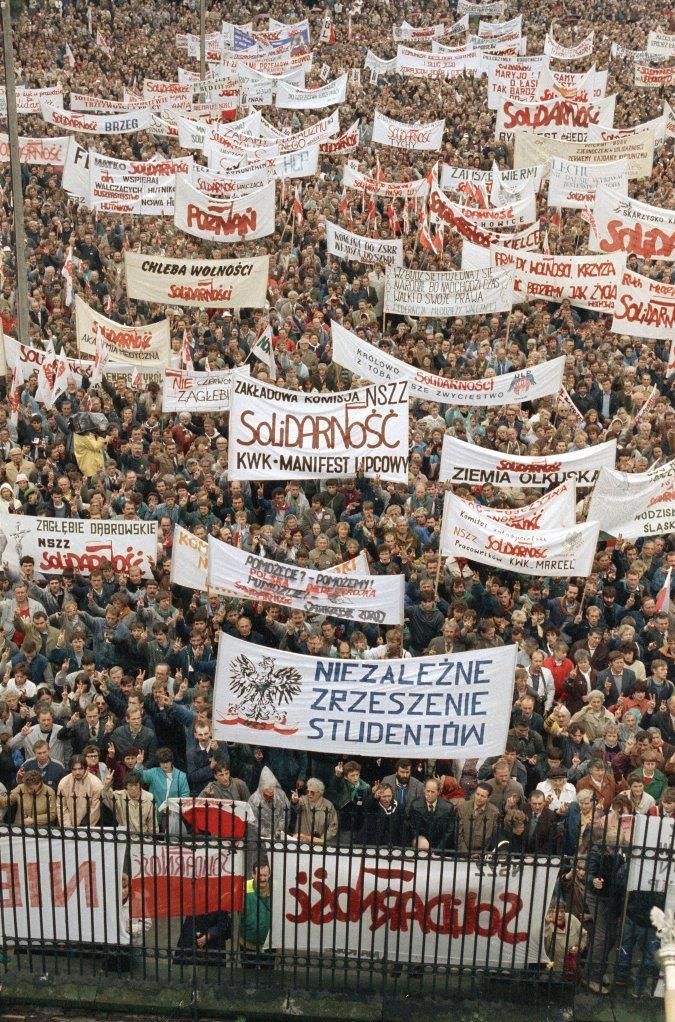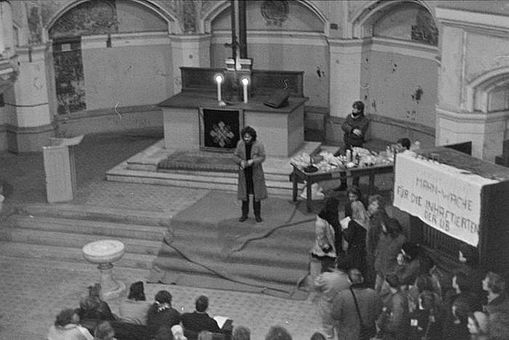
Arrests and expulsions
In 1987 the East German government wanted to silence its critics at home once again. There was a wave of arrests of opposition members in East Berlin, but major protests prompted their release. More arrests in January 1988 forced prominent civil rights activists to leave the GDR.
In November 1987 the SED saw an opportunity to break up the opposition in the GDR. The East German head of state Erich Honecker had been invited to an official state visit to Bonn by Chancellor Helmut Kohl two months previously. Following this act of recognition by the West German government, the SED took action against the opposition, arresting a number of people. The country reacted with a tide of protest, with solidarity campaigns for the prisoners in many towns and cities. There were also protests against the arrests in West Germany. The GDR government had to give in to public pressure and release the prisoners.
In January 1988 civil rights activists demonstrated for human rights and democracy, and more arrests were made. Using the threat of several years' imprisonment, the government forced most of the prisoners to leave for the West. The opposition seemed to have been weakened. But in the course of the year the protests continued to grow.

